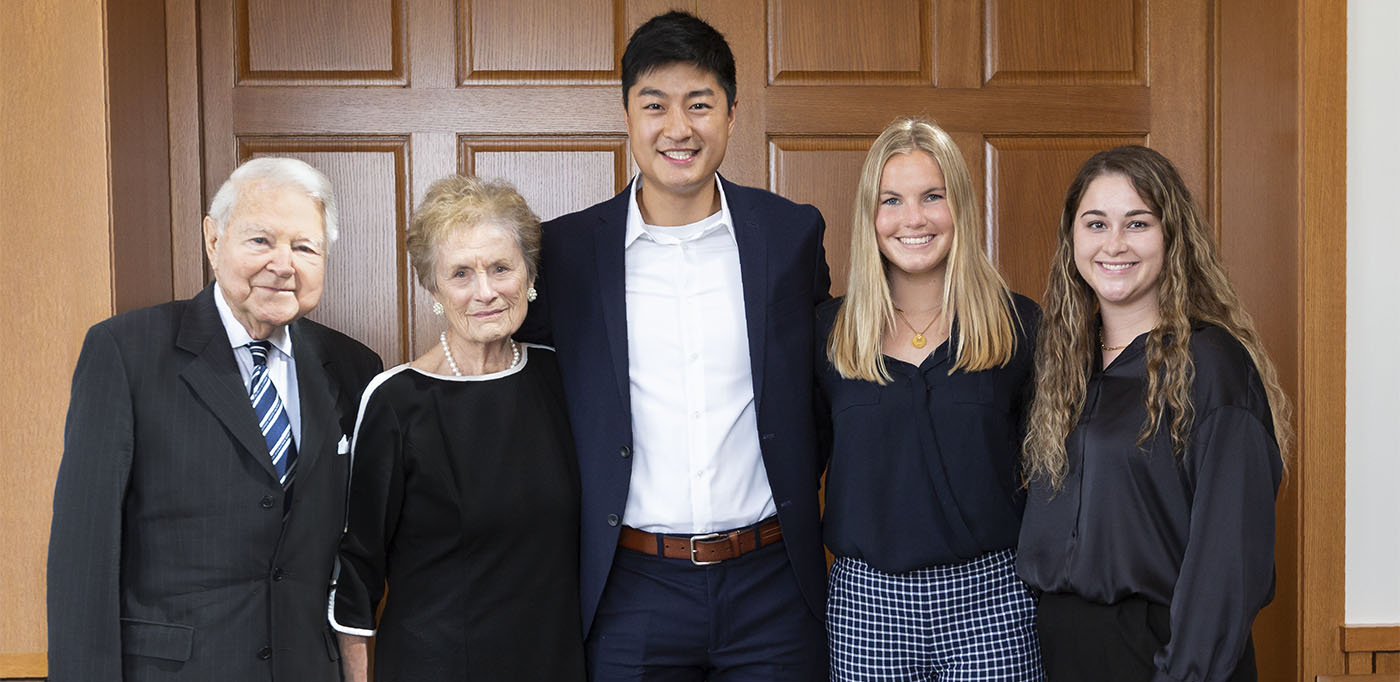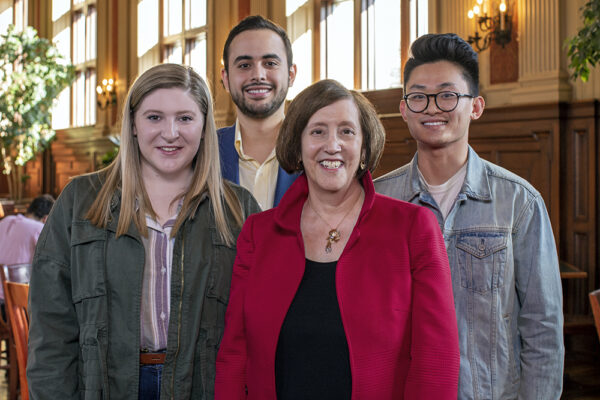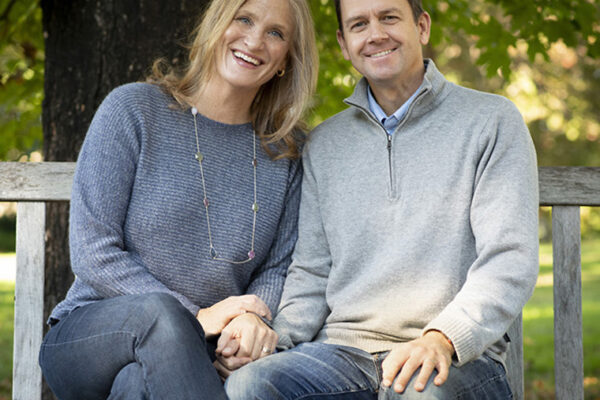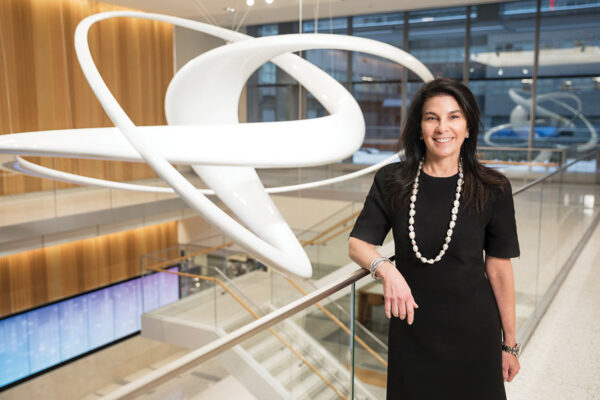Emeritus trustee George Bauer, BS ’53, MS ’59, and his wife, Carol Bauer, believe in the power of servant leadership. The Bauers have practiced this philosophy throughout their lives: A strong example is their exemplary service to Washington University. Over the past three decades, they have generously shared their time, talents and financial resources, advancing every facet of the university’s mission of education, research and patient care.
Most recently, the couple made a significant gift to establish the George and Carol Bauer Leaders Academy for the Danforth Scholars Program, one of WashU’s signature scholarship programs. This new leadership and character development initiative will help undergraduate Danforth Scholars discover their talents and clarify their values as they prepare for careers and lives in service of the greater good.
What does servant leadership mean to you?
George Bauer: One of the foremost scholars in the area of servant leadership is Robert Greenleaf, who was a director of management development with AT&T in the early to mid-20th century. He coined the phrase “servant leadership” and really made popular the notion that your role as a leader is to serve and support those who work for you, not to direct or dominate them. During my 31 years at IBM, I worked to implement this idea in the organization and in my role as a manager. For both Carol and me, it all goes back to our families. Service has been in the fabric of our lives from the start.
Carol Bauer: Both of my parents were church leaders. My dad also was head of an apprenticeship program for electricians in St. Louis and president of the electrical workers union. He stressed the importance of spending time with his students and the electricians in the union in order to get to know them and their work.
I’ve been involved as a volunteer with our local hospital in Norwalk, Connecticut, for 40 years and was fortunate to become chair of the board. As I was assuming the role, one of the hospital’s leaders suggested that I might not have time to continue volunteering, but I believed this investment of time was essential. I said, “How can you make decisions with integrity on the board when you don’t know what’s going on out in the hospital?” So I continued and have worked with staff of all levels and in many different areas. This service has been such a rich part of my life and has informed my leadership in so many ways. When others see that you are a leader and that you are working alongside them, I think that sends a strong message about the value of every person in the organization.
How has servant leadership informed your philanthropy?
George: Carol and I both come from fairly modest means. Her father was an electrician, and my parents were farmers. The good fortune that has come our way is a gift, of which we are the stewards. That means not just writing a check to an organization but really being involved and invested in organizations achieving their goals.
Carol: We have a family foundation, and our children, along with others, serve as trustees. They all have a certain amount of money to direct as they see fit, but they have to be involved in some way in the organizations to which they give. We feel so strongly about service, and, for us, there’s no greater joy than working alongside the people in the organizations we support.
Why have you been involved as volunteer leaders at WashU?
George: When I retired from IBM and went into investment banking, I found I had more time and more resources, and I was looking for a way to be a good steward of those resources. Washington University literally changed my life. It changed my understanding of the world around me and helped me grow intellectually as well as spiritually. In particular, an elective course on comparative religions of the world that I took with Huston Smith helped me realize that through my good fortune, I could help “level the playing field” for those less fortunate in our society.
What has been the most meaningful part of your service to Washington University?
Carol: The highlight has been getting to know the students, especially those who have been a part of the Bauer Leadership Center we helped establish at Olin Business School several years ago. It’s a rare privilege to meet such promising young people who are pursuing their education and determining what their life’s work will be. We really look forward to meeting Danforth Scholars who participate in the Bauer Leaders Academy.
George: It’s been so interesting to sit down with students and listen to them, field their questions and reflect on our own experiences. During a visit to campus a couple of years ago, I met several fellows from the Bauer Leadership Center, and we were discussing banking. I mentioned the Resolution Trust Corp., which predated them and hadn’t been covered in their classes. I was able to share my firsthand experience in the hotel business with this government intervention, which was created to resolve the savings and loan crisis of the 1980s. We talked about how and why that happened and what we might be able to do to avoid such a phenomenon in the future. Those kinds of discussions make getting involved at the university very worthwhile



